In the dynamic realm of e-commerce, success hinges on adaptation, and today, we ride the AI wave. As a humble E-commerce expert (having worked in E-commerce for 20 years+), the infusion of Artificial Intelligence (AI) has profoundly shaped my typical workday, revolutionising the industry’s operational landscape. This transformative technology has not only altered my daily responsibilities but has also opened new horizons for innovation and efficiency, steering me through the e-commerce space with a new co-pilot.
Let’s delve into the positive impacts this co-pilot brings to the ever-changing e-commerce journey:
Data-Driven Decision Making
AI transforms e-commerce data analysis. Tools like Google Analytics and Oracle Analytics play a vital role, leveraging machine learning to extract meaningful insights from vast datasets. For example, AI-enhanced Google Analytics provides comprehensive insights into user behaviour, audience segmentation and conversion tracking enabling targeted decision-making. The integration of AI elevates data analysis, offering intelligent recommendations, predictive analytics, and automated insights. This synergy empowers decision-makers to optimise strategies, identify successful channels, and make informed choices, harnessing the combined strength of analytics and artificial intelligence.
Customer Personalisation
AI’s remarkable impact lies in providing personalised experiences that resonate with individual customers. By utilising algorithms from platforms like Salesforce, Adobe and Lexer, we can analyse vast customer data. This analysis results in personalised recommendations that not only enhance customer satisfaction but also drive engagement and improve conversion rates. Salesforce’s Einstein AI, for example, uses predictive analytics to understand customer preferences and behaviour, enabling businesses to tailor their offerings accordingly.
Chatbots Enhancing Customer Service
The integration of AI-driven chatbots, such as those from Trengo and Zendesk, has streamlined customer service operations. These bots provide real-time support by addressing queries, offering product information, and assisting in the purchase process. This not only enhances the overall shopping experience but also frees up human resources to focus on more complex tasks. Zendesk’s chatbots, for instance, use natural language processing and machine learning to understand and respond to customer queries effectively.
Optimised Inventory Management and Demand Forecasting
AI-driven demand forecasting, facilitated by tools like Blue Yonder, Logility, and SAP has significantly improved inventory management systems. By analysing historical data and external factors such as seasonal trends, these tools minimize the risk of overstocking or stockouts. This ensures a smoother supply chain, enhancing overall operational efficiency.
Fraud Detection and Security
In the face of fraudulent activities, AI emerges as a powerful ally in fraud prevention. Security tools like Stripe, NuData Security and Fortinet leverage cutting-edge machine learning algorithms to identify and thwart unusual patterns, offering an enhanced layer of security to protect customer data and uphold the integrity of e-commerce platforms. Fortinet, for example, utilizes AI to detect and respond to cyber threats in real-time, providing robust protection against constantly evolving security risks.
Streamlining Content and Marketing Strategies
AI-powered tools like ChatGPT, HubSpot and Marketo have transformed marketing strategies into a magician’s act. Behind the scenes, AI analyses customer interactions and automates marketing campaigns for better engagement, enabling marketers to deliver personalized campaigns, refine targeting efforts, and optimize resource allocation. Additionally, AI supports creative tasks like content generation and design, enhancing human creativity and capabilities.
While AI brings numerous benefits, it also poses several challenges:
Job Insecurity
The automation driven by AI has the potential to impact roles in digital marketing, UX, web development, content creation, and beyond, necessitating employees to acquire new skills to stay relevant in the evolving job market. To address this challenge, platforms like LinkedIn Learning provide a plethora of courses designed to upskill professionals, offering a proactive solution to mitigate job insecurity by enabling individuals to adapt and thrive in the changing landscape.
Bias In Algorithms
AI systems may perpetuate biases present in the training data, requiring continuous monitoring and adjustments. Various initiatives and organizations are actively working towards promoting fairness and transparency in AI algorithms, striving to address and mitigate biases. For instance, the initiative by Australian Human Rights Commission,, Microsoft’s Responsible AI , and UNESCO‘s work on AI ethics are notable examples that focus on developing guidelines, standards, and practices to ensure that AI systems are deployed ethically and without perpetuating harmful biases. These initiatives contribute to fostering a more inclusive and equitable AI ecosystem.
Privacy Concerns
The collection and analysis of vast amounts of personal data raise privacy concerns, necessitating transparent and consensual data practices. Compliance with regulations and investing in secure data storage solutions, such as those offered by AWS or Microsoft Azure, can address these concerns.
Security Risks
The integration of AI in critical systems increases the risk of malicious use, demanding robust cybersecurity measures. Continuous monitoring, threat detection tools, and regular cybersecurity training for employees are crucial in mitigating security risks associated with AI.
Over Reliance On AI
Proper human oversight is essential to address negative side effects of overreliance on AI in decision-making processes. Establishing clear guidelines and frameworks for AI usage, along with regular audits, ensures responsible and ethical AI deployment.
Regulatory Challenges
The rapid evolution of AI technology outpaces regulatory frameworks, prompting the need for effective regulations to ensure responsible and ethical AI use. Collaborative efforts between policymakers, industry leaders, and technologists can help create a regulatory landscape that balances innovation with ethical considerations.
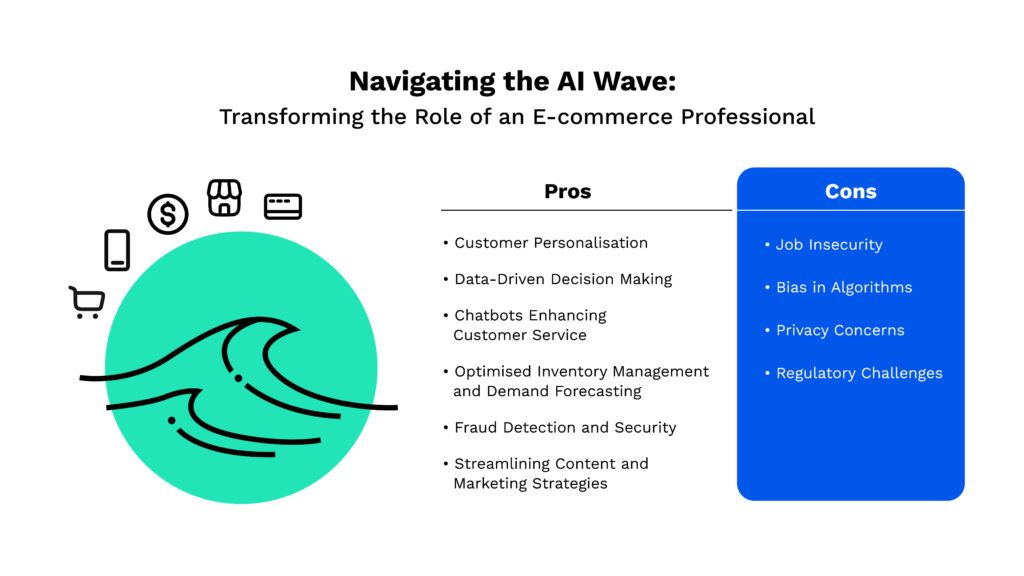
In conclusion, the integration of AI in the e-commerce landscape has been a game-changer, optimising existing processes and opening up new possibilities for innovation. As an E-commerce expert, I’ve witnessed firsthand the transformative power of AI in enhancing efficiency, improving customer experiences, and driving overall business success. Adapting to these technological advancements is not just a necessity but a strategic imperative to stay competitive in an ever-evolving market. However, challenges must be monitored and addressed collaboratively by policymakers, industry leaders, and technologists to develop responsible AI practices prioritising fairness, transparency, and the well-being of individuals and society as a whole.
The journey through the AI wave requires not only technical prowess but also a commitment to ethical considerations, ensuring a future where AI contributes positively to the e-commerce landscape.
Enjoy reading about AI, Digital Transformation and Technology?
Here are some articles from our “How has AI changed the way you work series” that you might enjoy:
GenAI adventures – A year in review By Rania Awad
ChatGPT Vs Human – Who wrote it best? By Kerstin Norburn
From SciFi to Daily assistance- Applying AI in the Workplace By David Williams
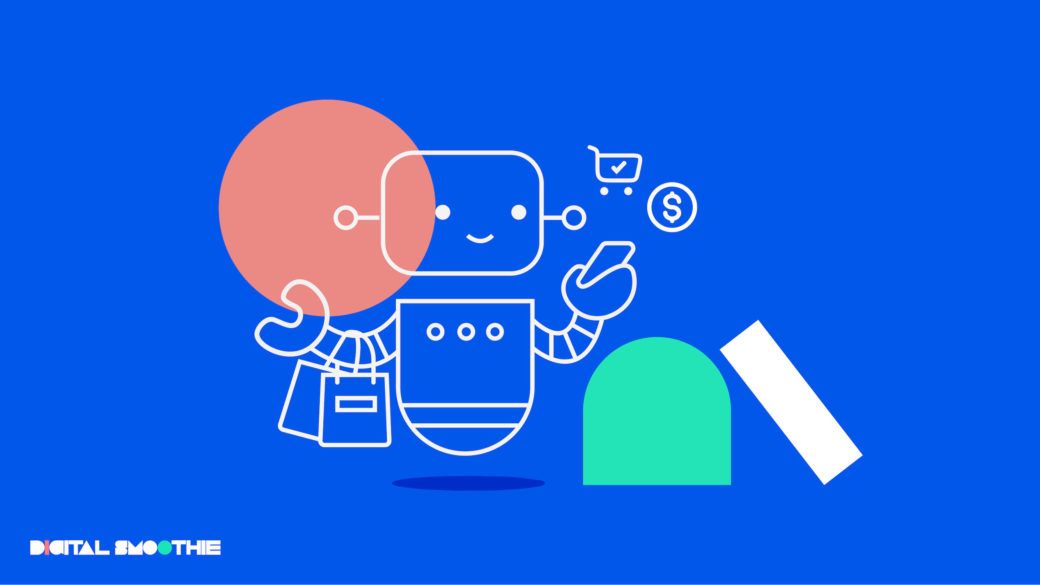
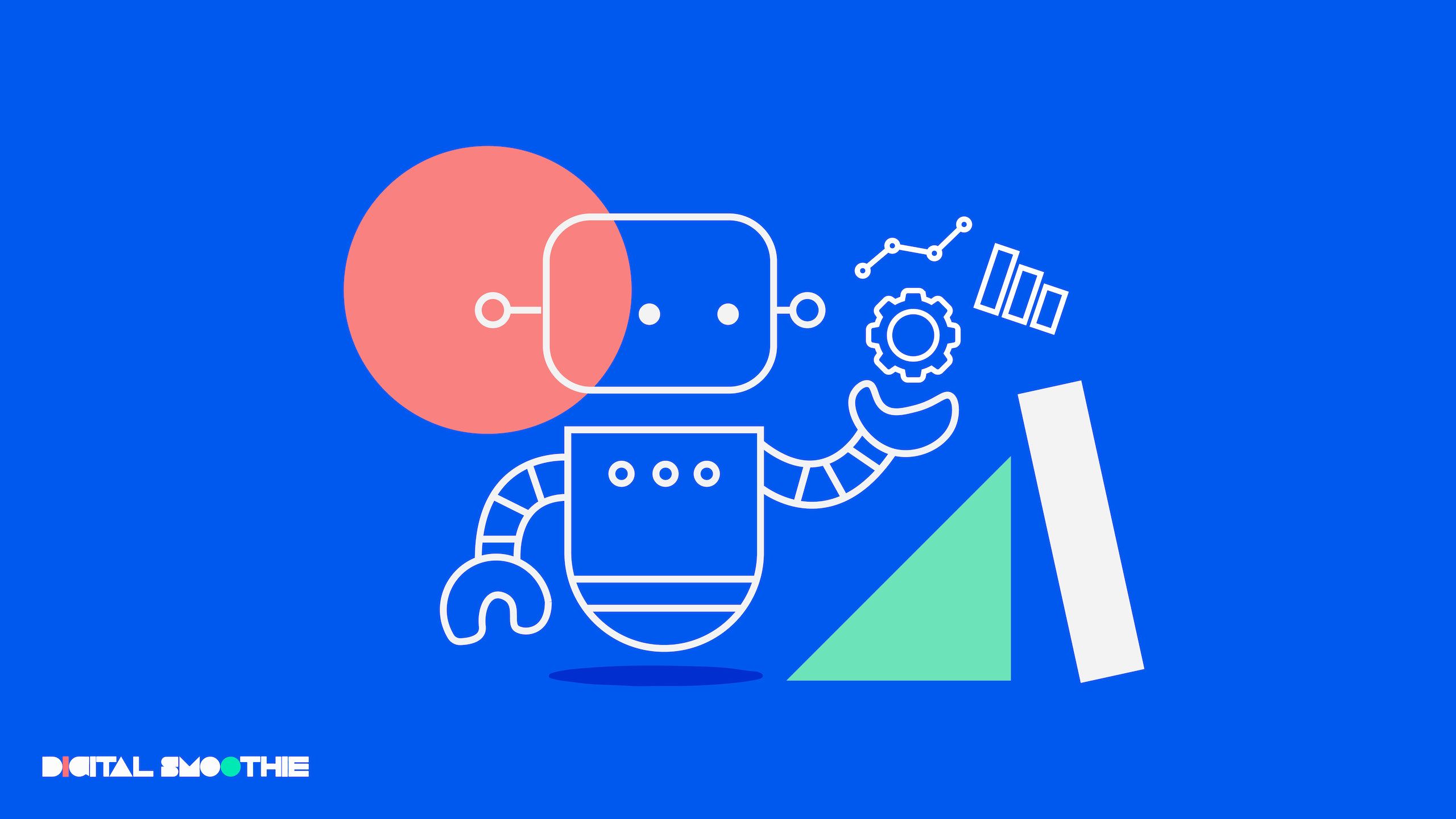
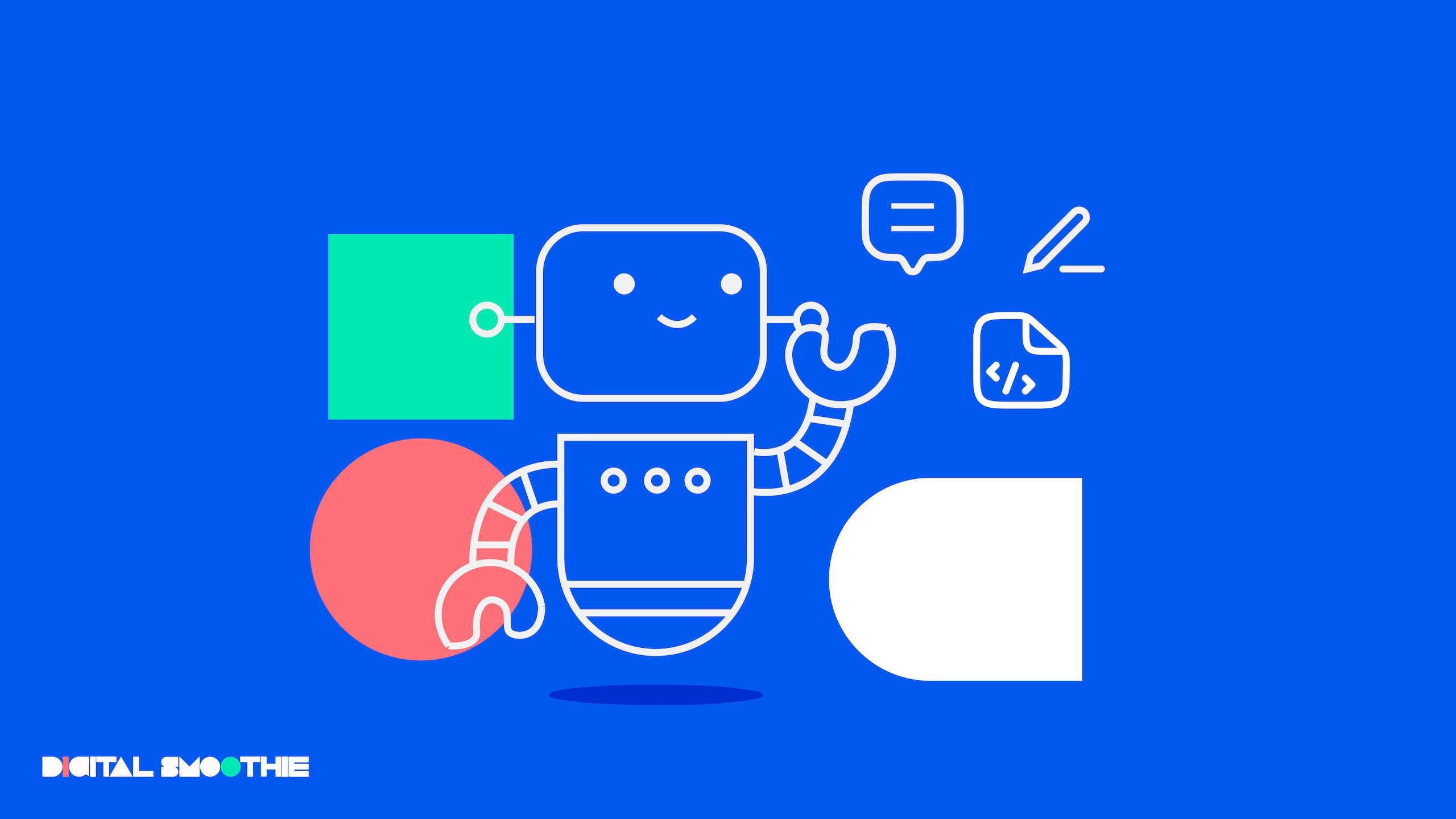
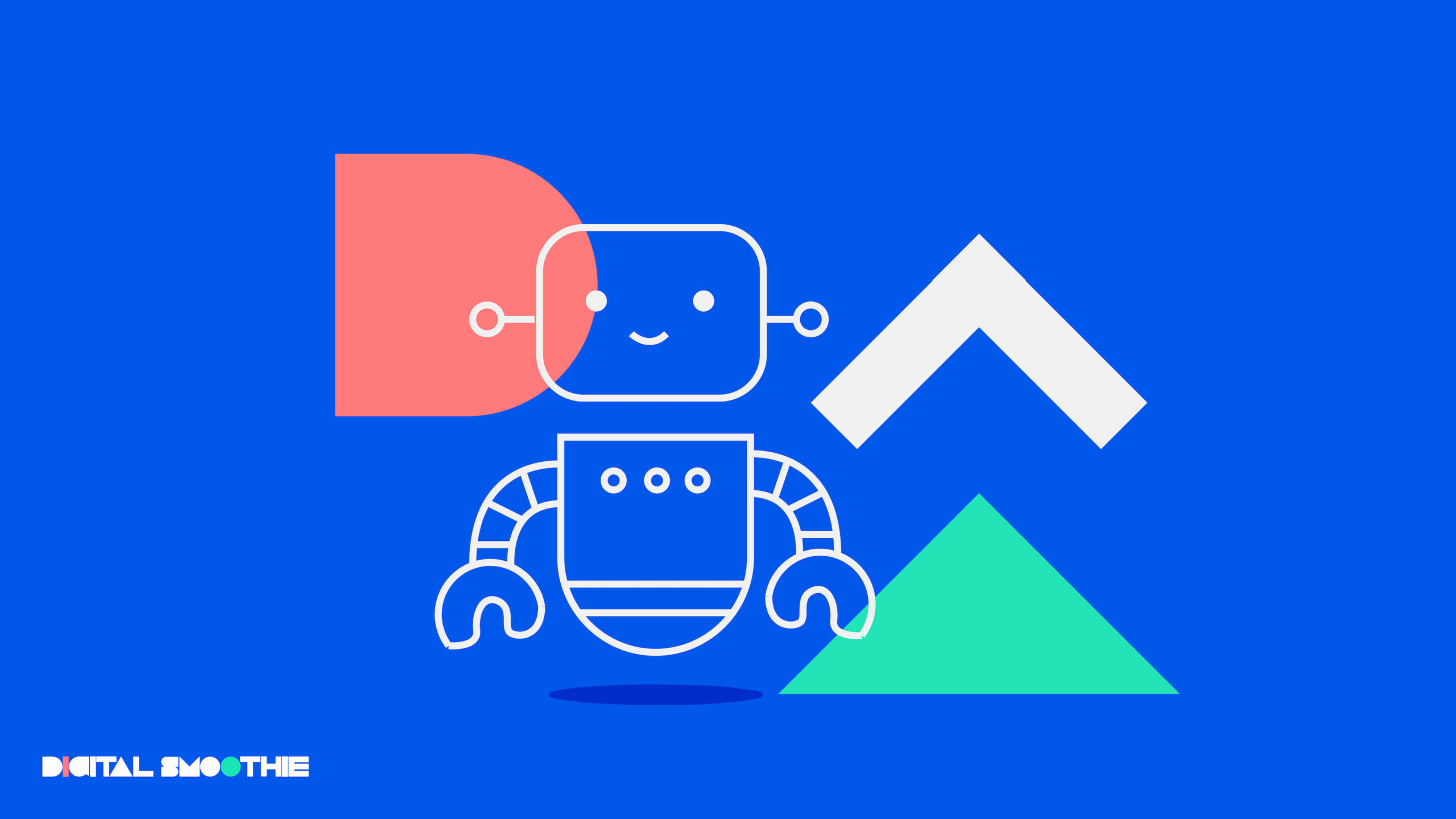
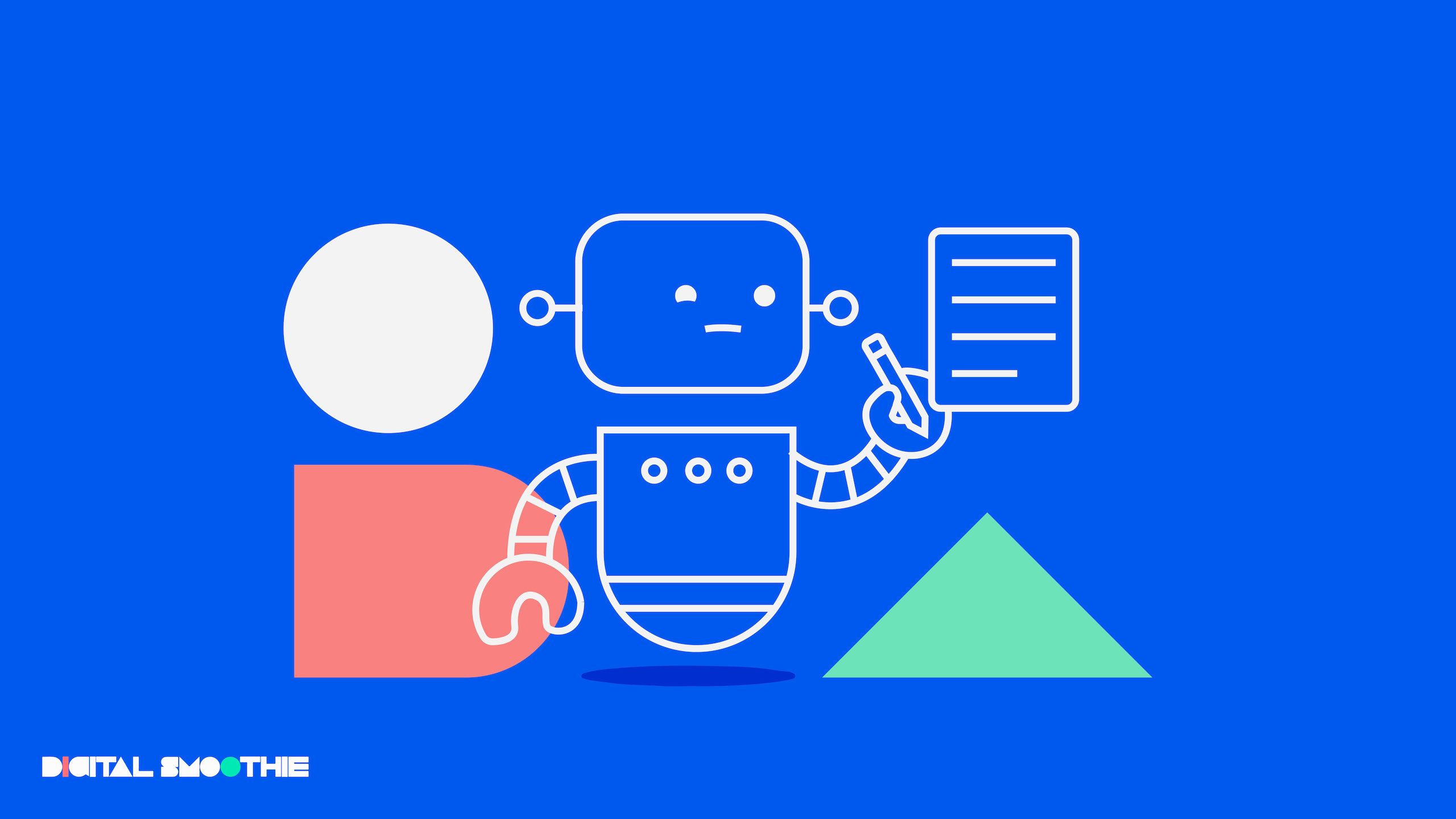


Leave a Reply